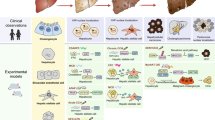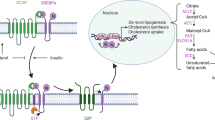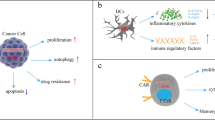Abstract
Diabetes and obesity are associated with non-alcoholic steatohepatitis and an increased incidence of hepatocellular carcinoma (HCC). TAZ and YAP are equivalently placed downstream effectors of the Hippo pathway with oncogenic roles in human cancers. Statins are commonly used to patients with metabolic problems as hypercholesterolemia. Statins also have anti-cancer properties, and the cross-talk between mevalonate pathway and Hippo pathway was known. The aim of this study is to confirm the statin’s anti-cancer effects on HCC cells and its survival benefits in HCC patients with curative surgery. TAZ expression level in HCC cell lines was analyzed by western blot. Two cell lines (HLF and HuH1) were used in this study. Then the mechanism of statin’s anti-proliferative effect was examined in HLF and HuH1 cells. In clinical setting, overall survival and recurrence-free survival (RFS) rate were examined in comparison between statin intake and statin non-intake group. The proliferation assay using four different statins (atorvastatin, pravastatin, fluvastatin, simvastatin). Simvastatin and fluvastatin showed very strong growth suppressive effects, and induced apoptosis in HLF cells, but not HuH1 cells. TAZ expression was suppressed in HLF cells by fluvastatin and simvastatin treatment. The similar change pattern was confirmed in p-ERK1/2 and ERK. In HuH1 cells, such expression change was not confirmed. In clinical setting, statin intake was significantly associated with longer RFS in the HCC patients with hepatectomy (P = 0.038). The statin had the anti-proliferative effects and induced apoptosis in HCC cells and improved the prognosis of HCC patients.





Similar content being viewed by others
Abbreviations
- HCC:
-
Hepatocellular carcinoma
- OS:
-
Overall survival
- RFS:
-
Recurrence-free survival
- TAZ:
-
Transcriptional co-activator with PDZ-binding motif
- YAP:
-
Yes-associated protein
- NASH:
-
Non-alcoholic steatohepatitis
References
Ferlay J, Soerjomataram I, Dikshit R, Eser S, Mathers C, Rebelo M, et al. Cancer incidence and mortality worldwide: sources, methods and major patterns in GLOBOCAN 2012. Int J Cancer. 2015;136(5):E359–86. doi:10.1002/ijc.29210.
Chan KK, Oza AM, Siu LL. The statins as anticancer agents. Clin Cancer Res. 2003;9(1):10–9.
Clendening JW, Penn LZ. Targeting tumor cell metabolism with statins. Oncogene. 2012;31(48):4967–78. doi:10.1038/onc.2012.6.
Ishikawa S, Hayashi H, Kinoshita K, Abe M, Kuroki H, Tokunaga R, et al. Statins inhibit tumor progression via an enhancer of zeste homolog 2-mediated epigenetic alteration in colorectal cancer. Int J Cancer. 2014;135(11):2528–36. doi:10.1002/ijc.28672.
Chiu HF, Ho SC, Chen CC, Yang CY. Statin use and the risk of liver cancer: a population-based case-control study. Am J Gastroenterol. 2011;106(5):894–8. doi:10.1038/ajg.2010.475.
McGlynn KA, Divine GW, Sahasrabuddhe VV, Engel LS, VanSlooten A, Wells K, et al. Statin use and risk of hepatocellular carcinoma in a U.S. population. Cancer Epidemiol. 2014;38(5):523–7. doi:10.1016/j.canep.2014.06.009.
Wu S, Huang J, Dong J, Pan D. Hippo encodes a Ste-20 family protein kinase that restricts cell proliferation and promotes apoptosis in conjunction with salvador and warts. Cell. 2003;114(4):445–56.
Ramos A, Camargo FD. The hippo signaling pathway and stem cell biology. Trends Cell Biol. 2012;22(7):339–46. doi:10.1016/j.tcb.2012.04.006.
Qin F, Tian J, Zhou D, Chen L. Mst1 and Mst2 kinases: regulations and diseases. Cell Biosci. 2013;3(1):31. doi:10.1186/2045-3701-3-31.
Han SX, Bai E, ** GH, He CC, Guo XJ, Wang LJ, et al. Expression and clinical significance of YAP, TAZ, and AREG in hepatocellular carcinoma. J Immunol Res. 2014;2014:261365. doi:10.1155/2014/261365.
Huo X, Zhang Q, Liu AM, Tang C, Gong Y, Bian J, et al. Overexpression of yes-associated protein confers doxorubicin resistance in hepatocellular carcinoma. Oncol Rep. 2013;29(2):840–6. doi:10.3892/or.2012.2176.
Higashi T, Hayashi H, Ishimoto T, Takeyama H, Kaida T, Arima K, et al. miR-9-3p plays a tumour-suppressor role by targeting TAZ (WWTR1) in hepatocellular carcinoma cells. Br J Cancer. 2015;113(2):252–8. doi:10.1038/bjc.2015.170.
Sorrentino G, Ruggeri N, Specchia V, Cordenonsi M, Mano M, Dupont S, et al. Metabolic control of YAP and TAZ by the mevalonate pathway. Nat Cell Biol. 2014;16(4):357–66. doi:10.1038/ncb2936.
Warita K, Warita T, Beckwitt CH, Schurdak ME, Vazquez A, Wells A, et al. Statin-induced mevalonate pathway inhibition attenuates the growth of mesenchymal-like cancer cells that lack functional E-cadherin mediated cell cohesion. Sci Rep. 2014;4:7593. doi:10.1038/srep07593.
Boudreau DM, Yu O, Johnson J. Statin use and cancer risk: a comprehensive review. Expert Opin Drug Saf. 2010;9(4):603–21. doi:10.1517/14740331003662620.
Wang Z, Wu Y, Wang H, Zhang Y, Mei L, Fang X, et al. Interplay of mevalonate and Hippo pathways regulates RHAMM transcription via YAP to modulate breast cancer cell motility. Proc Natl Acad Sci USA. 2014;111(1):E89–98. doi:10.1073/pnas.1319190110.
Ghosh-Choudhury N, Mandal CC, Ghosh-Choudhury N, Ghosh Choudhury G. Simvastatin induces derepression of PTEN expression via NFkappaB to inhibit breast cancer cell growth. Cell Signal. 2010;22(5):749–58. doi:10.1016/j.cellsig.2009.12.010.
Ahern TP, Lash TL, Damkier P, Christiansen PM, Cronin-Fenton DP. Statins and breast cancer prognosis: evidence and opportunities. Lancet Oncol. 2014;15(10):e461–8. doi:10.1016/S1470-2045(14)70119-6.
Arnspang S, Pottegard A, Friis S, Clemmensen O, Andersen KE, Hallas J, et al. Statin use and risk of nonmelanoma skin cancer: a nationwide study in Denmark. Br J Cancer. 2015;112(1):153–6. doi:10.1038/bjc.2014.527.
Baandrup L, Dehlendorff C, Friis S, Olsen JH, Kjaer SK. Statin use and risk for ovarian cancer: a Danish nationwide case-control study. Br J Cancer. 2015;112(1):157–61. doi:10.1038/bjc.2014.574.
Alexandre L, Clark AB, Bhutta HY, Holt S, Lewis MP, Hart AR. Statin use is associated with reduced risk of histologic subtypes of esophageal cancer: a nested case-control analysis. Gastroenterology. 2014;146(3):661–8. doi:10.1053/j.gastro.2013.11.046.
Clement S, Peyrou M, Foti M, Negro F. Statins may protect against hepatocellular carcinoma development in patients infected with hepatitis C virus, but what are the mechanisms? J Clin Oncol. 2013;31(32):4160–1. doi:10.1200/JCO.2013.51.0354.
Yu O, Eberg M, Benayoun S, Aprikian A, Batist G, Suissa S, et al. Use of statins and the risk of death in patients with prostate cancer. J Clin Oncol. 2014;32(1):5–11. doi:10.1200/JCO.2013.49.4757.
Singh PP, Singh S. Statins are associated with reduced risk of gastric cancer: a systematic review and meta-analysis. Ann Oncol. 2013;24(7):1721–30. doi:10.1093/annonc/mdt150.
Liu Y, Tang W, Wang J, **e L, Li T, He Y, et al. Association between statin use and colorectal cancer risk: a meta-analysis of 42 studies. Cancer Causes Control. 2014;25(2):237–49. doi:10.1007/s10552-013-0326-6.
Ahern TP, Pedersen L, Tarp M, Cronin-Fenton DP, Garne JP, Silliman RA, et al. Statin prescriptions and breast cancer recurrence risk: a Danish nationwide prospective cohort study. J Natl Cancer Inst. 2011;103(19):1461–8. doi:10.1093/jnci/djr291.
Cardwell CR, Hicks BM, Hughes C, Murray LJ. Statin use after colorectal cancer diagnosis and survival: a population-based cohort study. J Clin Oncol. 2014;32(28):3177–83. doi:10.1200/JCO.2013.54.4569.
Campbell MJ, Esserman LJ, Zhou Y, Shoemaker M, Lobo M, Borman E, et al. Breast cancer growth prevention by statins. Cancer Res. 2006;66(17):8707–14. doi:10.1158/0008-5472.CAN-05-4061.
Author information
Authors and Affiliations
Corresponding author
Ethics declarations
Conflict of interest
None.
Electronic supplementary material
Below is the link to the electronic supplementary material.
Rights and permissions
About this article
Cite this article
Higashi, T., Hayashi, H., Kitano, Y. et al. Statin attenuates cell proliferative ability via TAZ (WWTR1) in hepatocellular carcinoma. Med Oncol 33, 123 (2016). https://doi.org/10.1007/s12032-016-0845-6
Received:
Accepted:
Published:
DOI: https://doi.org/10.1007/s12032-016-0845-6




